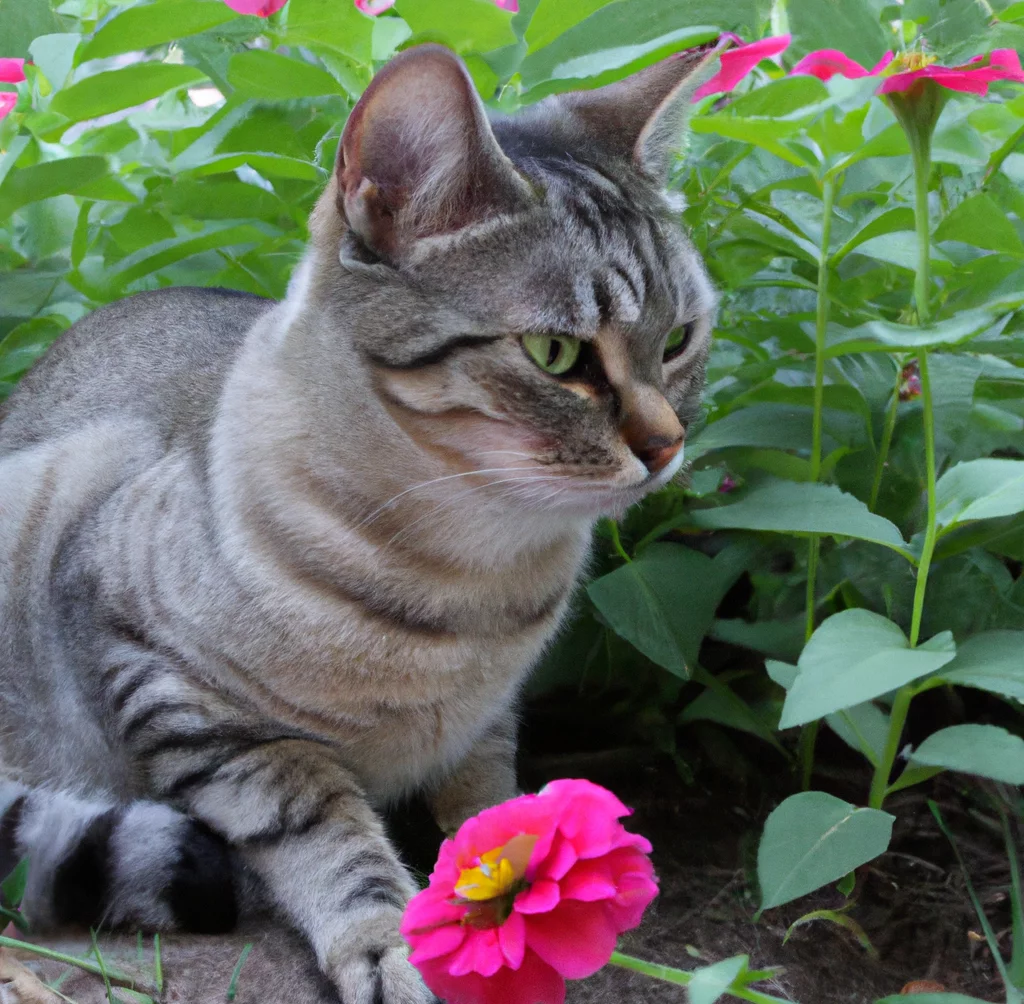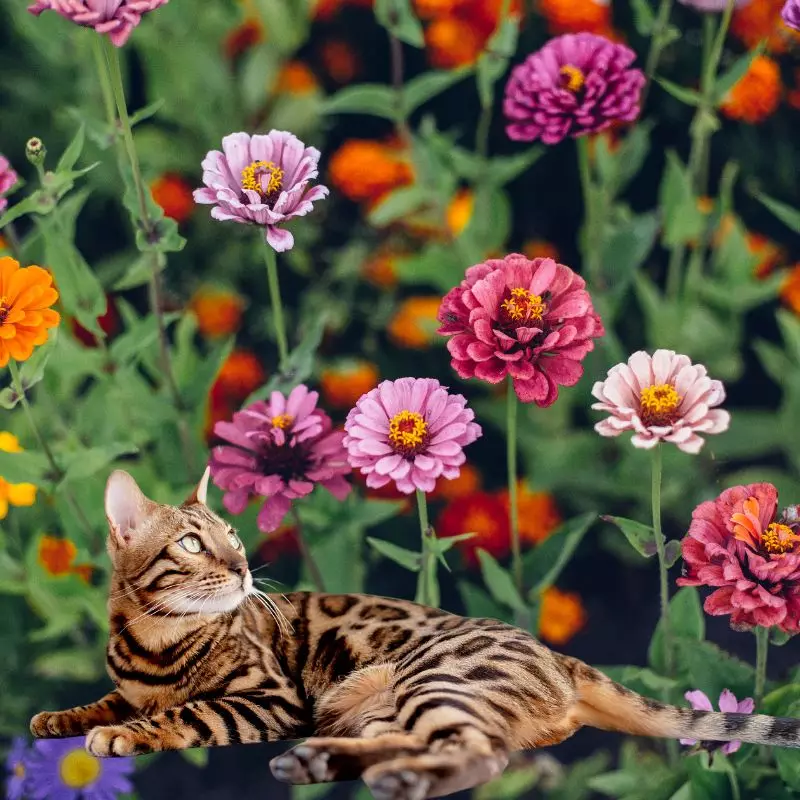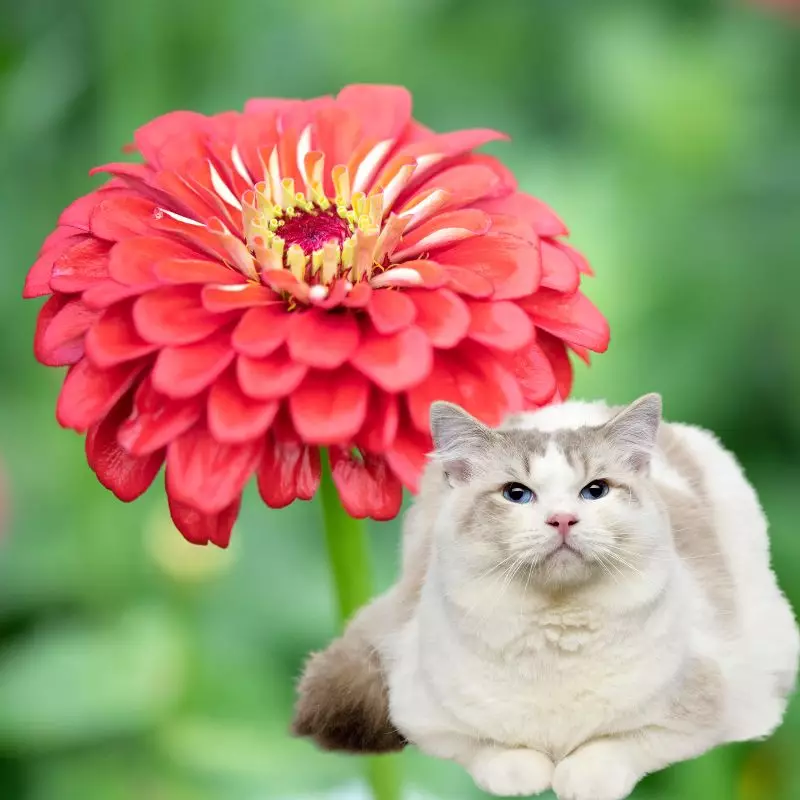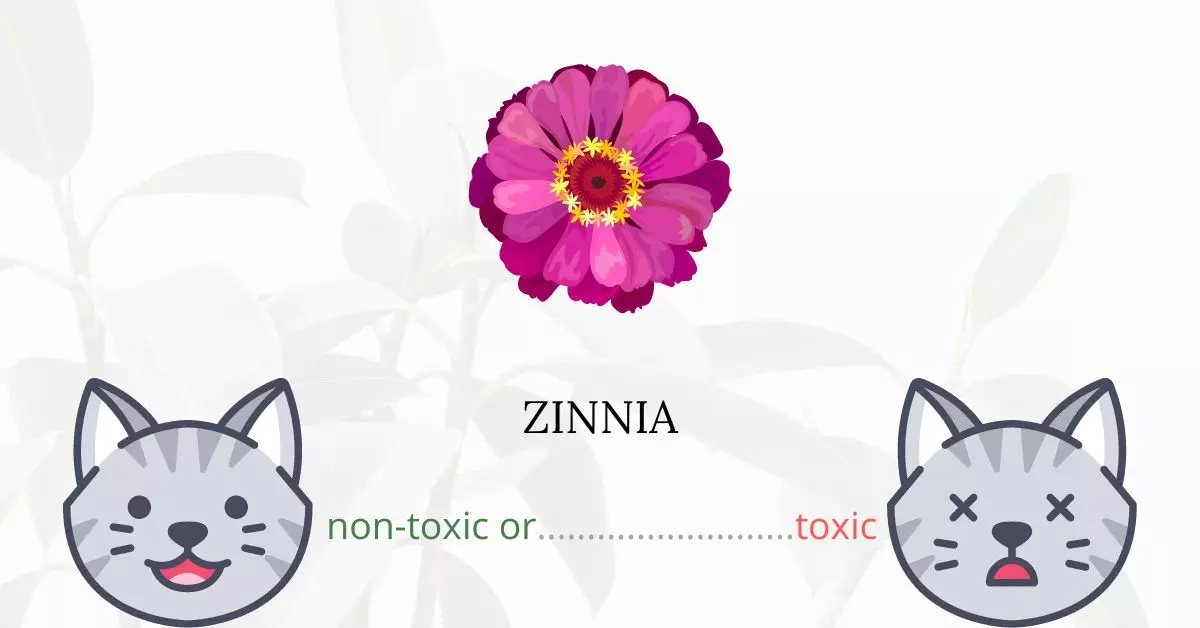Zinnias are not toxic to cats. In fact, the ASPCA Poison Control Center categorizes zinnia species as non-toxic plants for our feline friends.
This article is a collaborative effort, written in conjunction with a team of experienced DVMs (doctors of veterinary medicine). Their expertise ensures that we provide accurate and up-to-date information on the potential risks associated with various plants, specifically Zinnias in this context. Furthermore, to guarantee the reliability of our information, we’ve also conducted thorough research on high-authority websites such as the ASPCA and PetMD.
While zinnias are deemed safe, it’s always advisable to exercise caution and prevent your cat from chewing on them or any other plants.
Can Cats Eat Zinnia?

When cats eat a lot of zinnias, their digestive systems become uncomfortable, and they develop stomach upset. Cats are carnivorous animals, so plants are challenging for them to digest, which is the main cause of indigestion.
Although the effects of zinnias are thought to be relatively mild compared to some plants that cause severe adverse reactions, caution should still be exercised.
The reaction of your cat depends on the amount of food consumed as well as the cat’s health, age, and immune system status.
If you also use fertilizers or pesticides on your plants, you should be aware that some of these products can cause poisoning to your cats. Since some plant care products contain toxic chemicals, there are chances that your cat may ingest these residues particularly if they love nibbling on your plants.
What is Zinnia?

Zinnias are Asteraceae plant members that are native to Mexico and the United States. They are distinguished by their lone, brightly colored flowers on long stems.
The majority of species have stems that are upright, but some have a lax habit of spreading stems that mound over the ground’s surface. Usually, they grow between 10 and 100 cm tall (4″ to 40″).
Zinnias are simple to grow and have the potential to produce large, colorful blooms. They are annual plants that prefer to sprout from seed in their natural environment because they detest being transplanted.
Zinnias favor full sunlight and enough water, much like daisies. They will quickly expand under ideal circumstances, but because they are delicate to frost, they will perish after the first frost of the fall.
Keeping Cats Away From Zinnia

You might consider using mustard as a deterrent to prevent your cats from eating your zinnias at home. Spray some mustard that has been diluted in water on the plants that your cat is damaging. Every two days or so, apply the solution peat again.
Alternatively, you can substitute pepper for the mustard. Simply dissolve two tablespoons of crushed fresh pepper in hot water for a few minutes before filtering.
The only drawback is that the pepper smell does not last very long. As a result, you’ll need to sprinkle the solution on your plants more frequently.
Cats dislike lemons and citrus fruits in general (like orange or tangerine). Bring a liter of water to a boil with a teaspoon of lemon or orange zest, then steep for ten minutes before filtering.
Once the finished mixture has cooled, spray it all over the areas where you don’t want your cats.
Plants to Avoid For Your Cats
If you are a cat owner and unsure if the plants growing in your yard are harmful to your cats, check out this list of toxic plants for cats. You can also check our list of non-toxic plants for cats.





